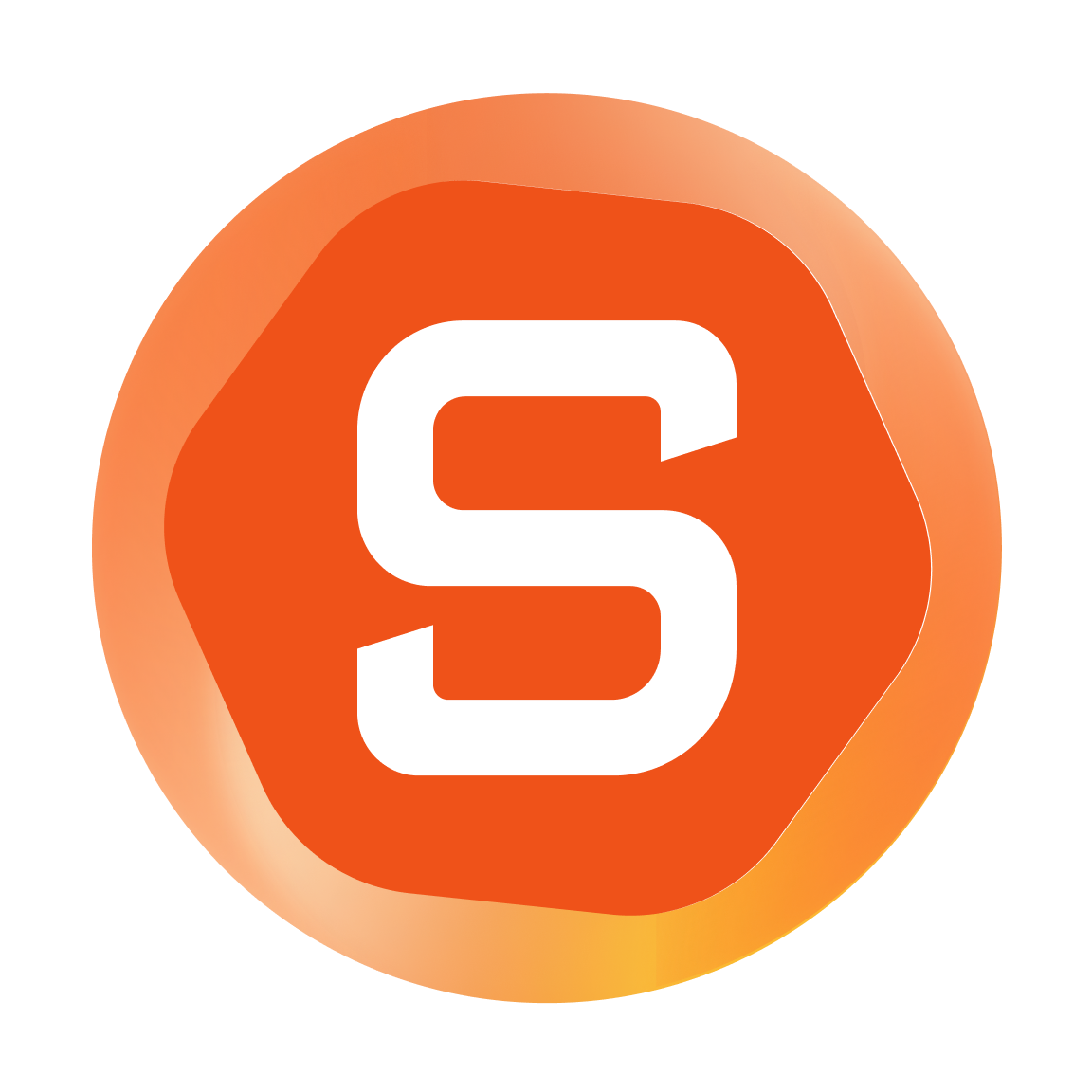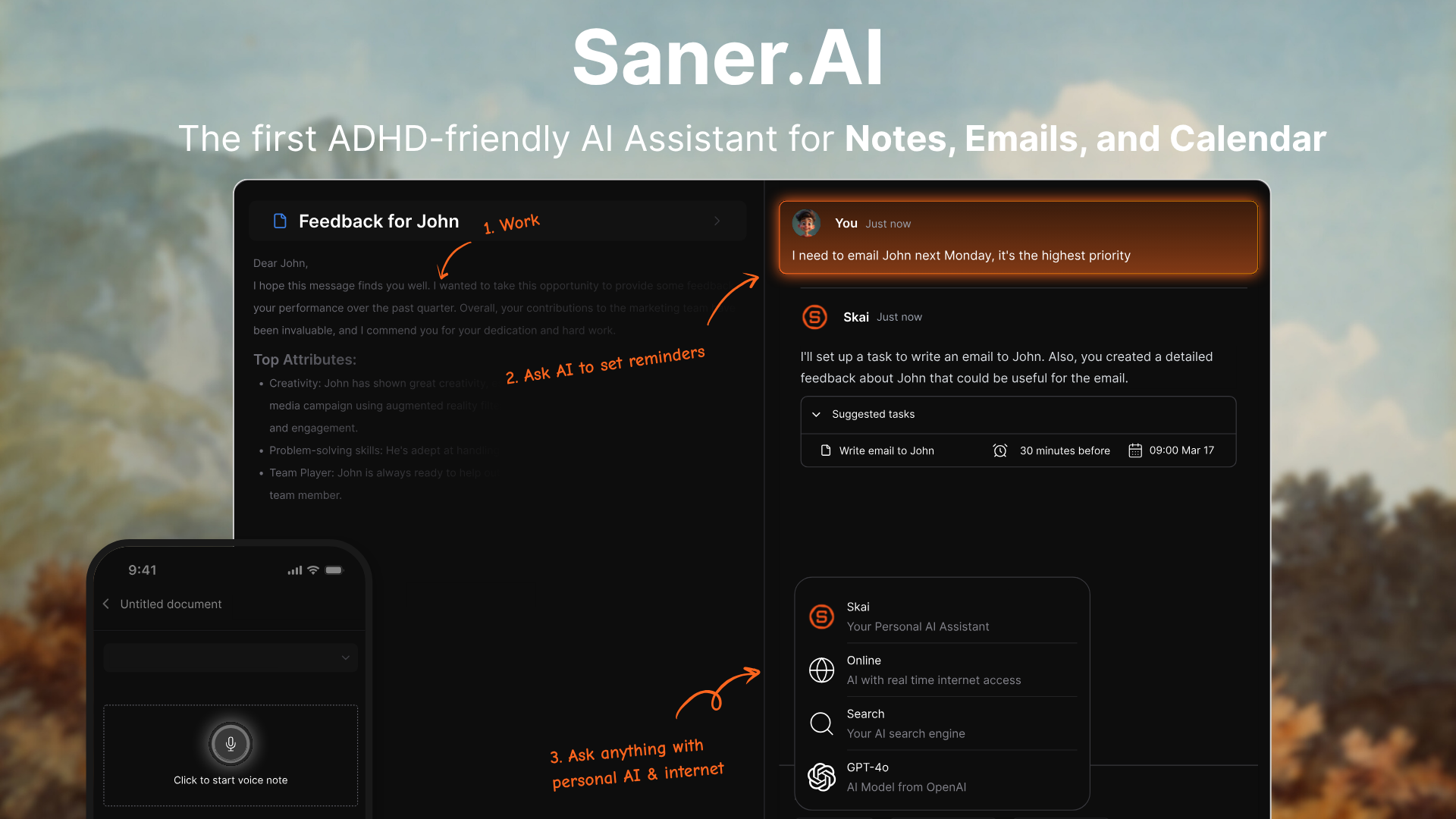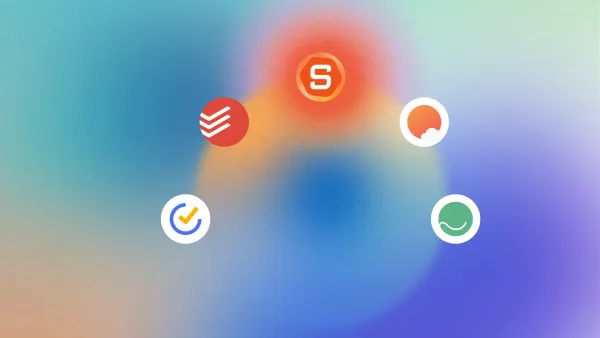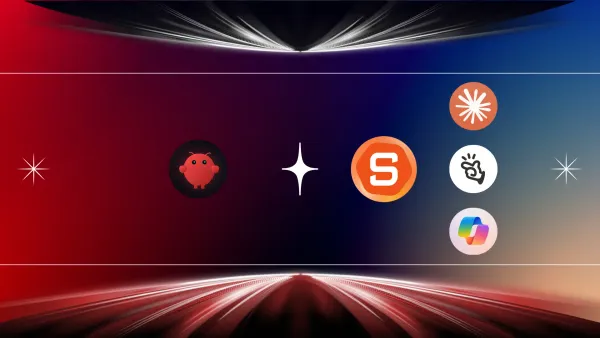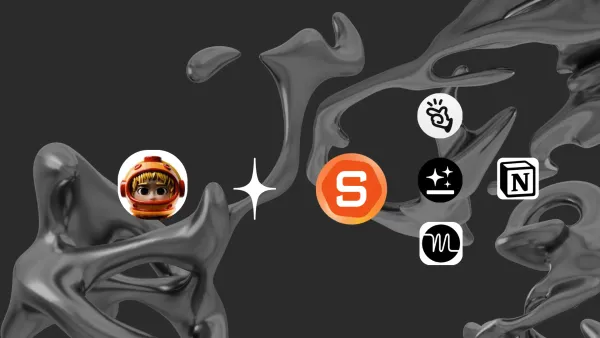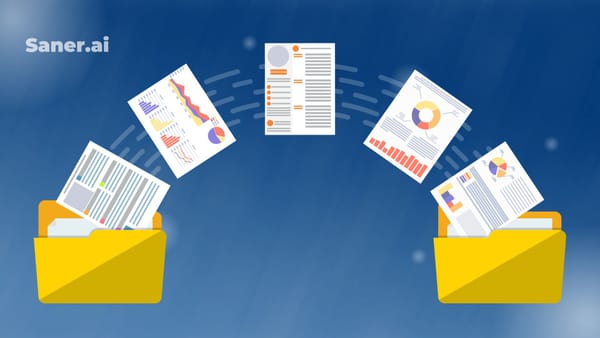Best AI Tools to Organize Notes in 2025
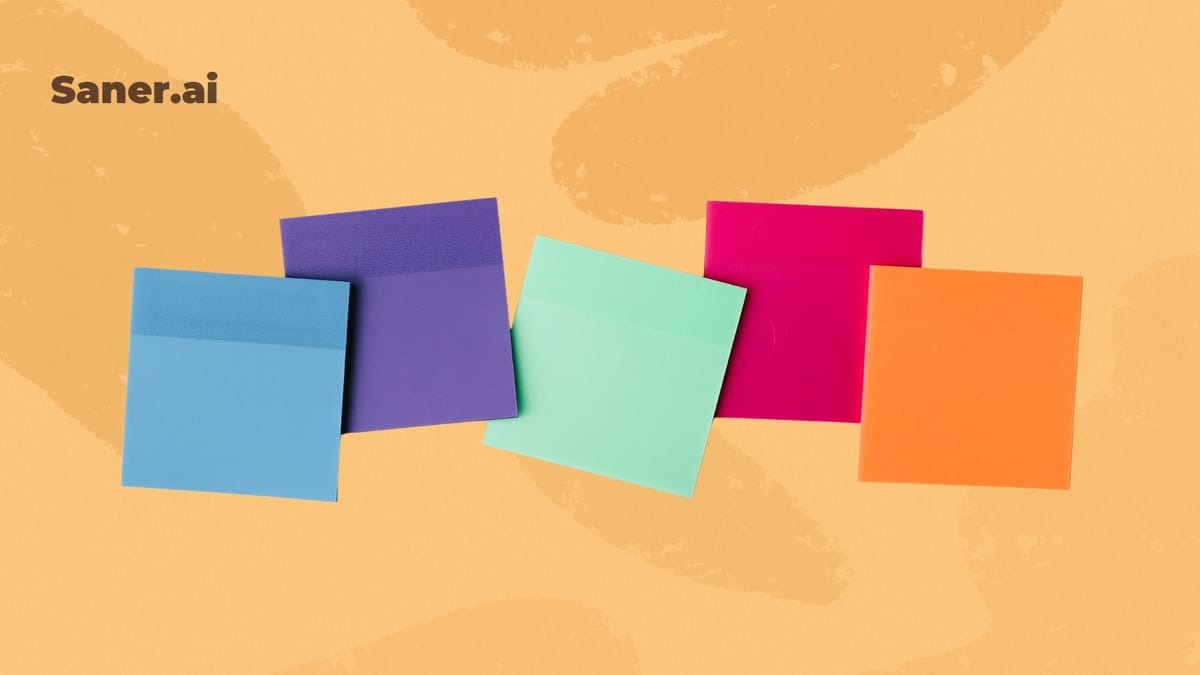
Top AI Tools for Organizing Notes
In today’s fast-paced world, it’s easy to get buried under a mountain of notes, meeting minutes, project ideas, emails, and scattered thoughts. The real challenge? Keeping everything organized so you can find what you need - exactly when you need it.
That’s where AI note-taking tools come in.
These tools use artificial intelligence to help you stay on top of your information. They don’t just store your notes - they help you structure them, search across them instantly, summarize long content, and even connect your thoughts across projects or platforms.
Whether you're a student, entrepreneur, or knowledge worker, using an AI note tool means:
- No more endlessly scrolling through disorganized files
- No more missing key points from meetings
- No more losing track of your ideas

The right tool can even turn your scattered brain dumps into a smart, searchable system. But before we dive into the best AI note tools out there, let’s get clear on what note organization actually means - and why AI makes a big difference.
What Is Note Organization?
It’s like creating playlists for your thoughts: grouping notes by topic, date, project, or priority.
When your notes are well-organized, your mind feels less cluttered. You can move faster, stay focused, and recall ideas without wasting time.
Whether it’s for school, work, side projects, or personal growth - structured notes help you think clearly and act confidently.
II. Why Use AI Tools to Organize Notes?
Here’s why AI tools are game-changers for anyone who takes a lot of notes:
- 🧠 Instant Search
Need to find a note from last month? Or a task buried in yesterday’s meeting? AI can search across all your notes - by keyword, topic, or context - so you never lose track of important info.
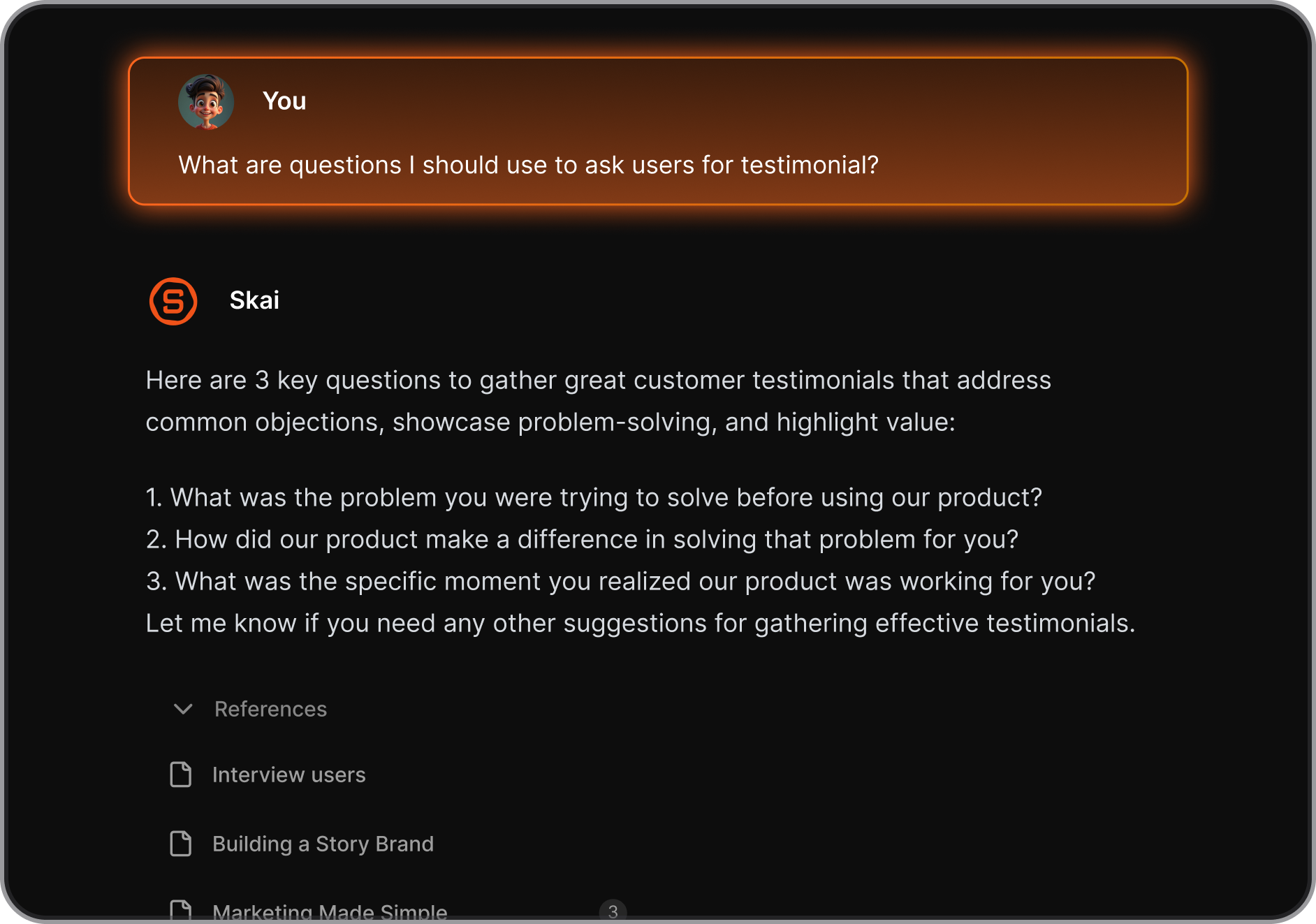
- 📁 Auto-Sorting & Smart Tagging
Many AI note tools automatically categorize your notes by theme, project, or client. No need to manually tag everything - it just works in the background. - 📄 Summarization
Don’t have time to read that long brainstorm session or meeting transcript? AI can instantly pull out the main points and suggested action items. - 🔗 Seamless Integrations
These tools often sync with your calendar, email, and task managers - so your notes aren’t isolated. Everything connects, streamlining your entire workflow. - 🎙 Voice-Friendly
Prefer talking over typing? Some tools convert voice into structured notes, making it easier for ADHD-prone users or anyone who thinks better out loud.
Best AI Tools for Notes Organization
Comparison Table: AI Tools for Note Organization (2025)
| Tool | Note Organization Model | AI Features for Notes | Integrations | Best For |
|---|---|---|---|---|
| Saner.AI | AI chat + auto-tag flow | Smart tag & auto-sort, chat-based search over notes & tasks, AI summaries & actionable insights | Email, Calendar, Web Clipper | ADHD-friendly users who need minimal friction in capture + organization |
| Notion | Flexible databases & pages | AI-powered summaries, content restructuring, meeting transcription & action item extraction | Deep with Google, Slack, Figma, more | Power users and teams who want rich structure + cross-tool integrations |
| Tana | Outline- and node-based second-brain | Auto-structured notes via commands, AI-driven node linking and metadata management | Built-in integrations, flexible views | Users seeking networked thinking tools that scale with complexity |
| Capacities | Object-based note/knowledge base | AI links objects and context, surfaces related ideas visually and contextually | Designed as standalone, exportable | Creatives and researchers who want visual, object-driven memory and recall |
1. Saner.AI
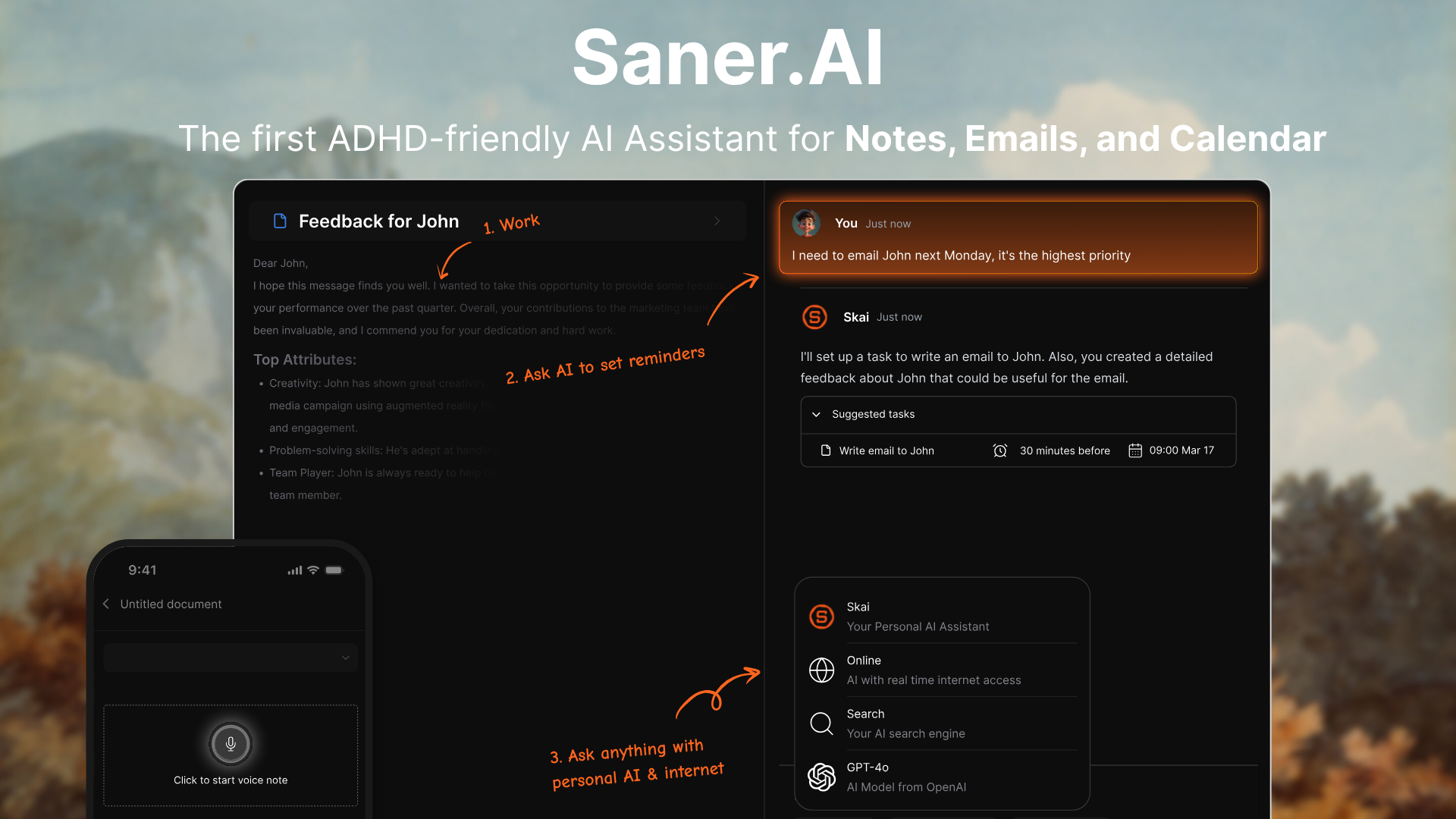
Saner.AI is a personal AI productivity assistant that helps you manage notes, tasks, calendar, and even email - all in one place. Designed with ADHD-friendly workflows in mind, it lets you offload thoughts, prioritize work, and get things done without the usual mental overload. You can chat with it like an assistant, and it’ll pull insights, create to-dos, plan your day, and check in with you.
Key features
- Unified workspace for notes, tasks, calendar, and email
- Chat-based AI assistant that understands your context and gets things done
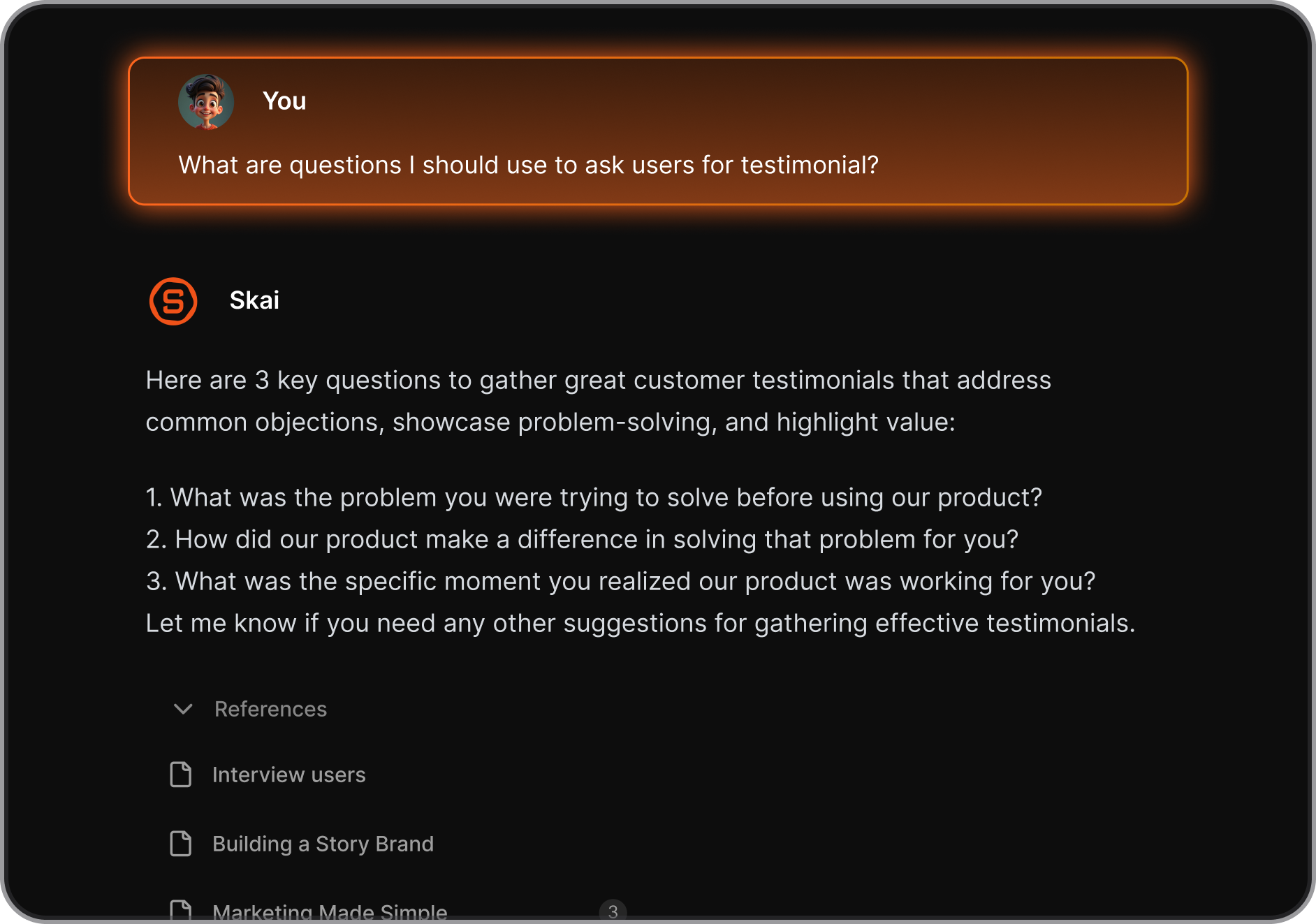
- Automatic to-do generation and scheduling based on what matters most
- Voice input and transcription for fast, unstructured capture
- Smart organization with tag suggestions, folders, and mind map view
- Bulk import from Notion, Apple Notes, Obsidian, PDFs, and more
- Chrome extension for saving from the web
- Designed with ADHD brains in mind
What I liked
- I can just dump thoughts, and the AI will turn them into structured tasks or reminders
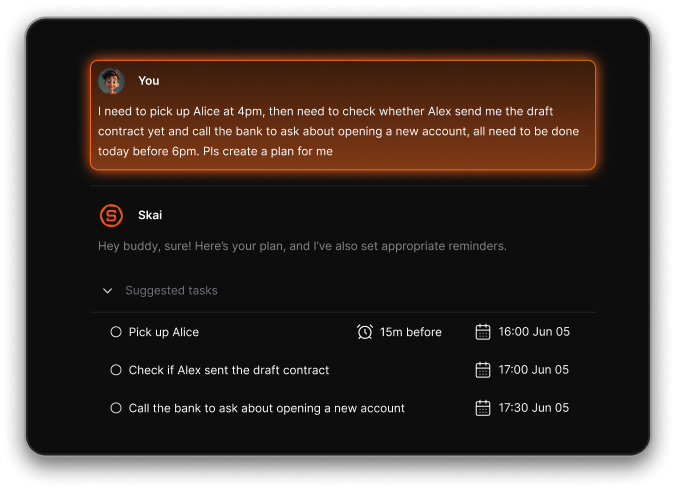
- The automatic daily planner is super helpful - it builds a schedule around your meetings and gives you focus time without needing manual tweaks
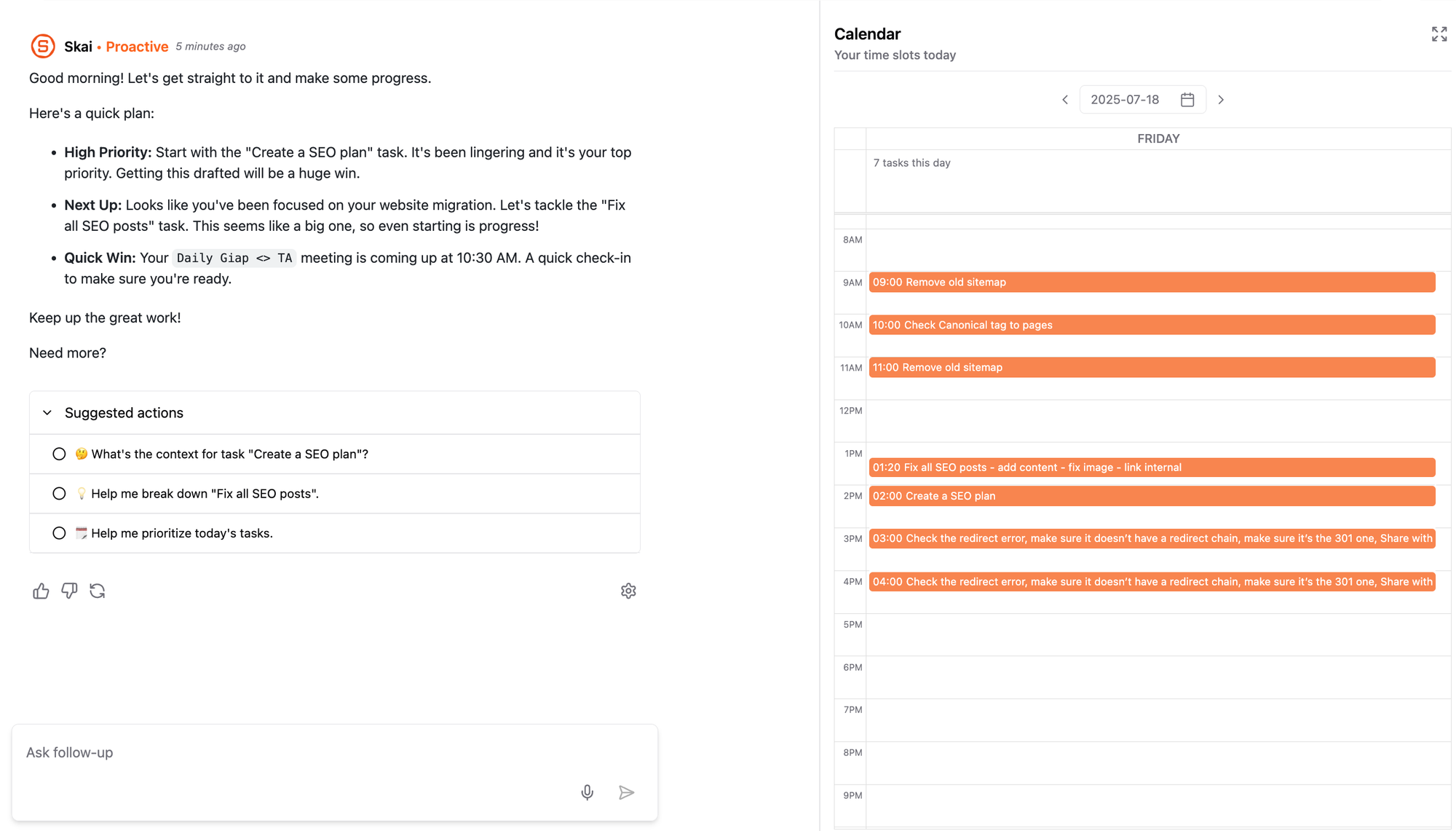
- It actually feels like a second brain - Skai remembers, organizes, and suggests things I’d otherwise forget
Cons
- Not ideal for large teams or project timelines - no Gantt charts or complex task dependencies.
Pricing
- Free
- Starter: Monthly at $8/month, Annually at $6/month (with early user discount)
- Standard: Monthly at $16/month, Annually at $12/month (with early user discount)
Who is it suitable for?
- Professionals, entrepreneurs, students, and creatives - especially those with ADHD or who feel overwhelmed juggling multiple tools.
Saner.AI review

How to start using it?
- Go to Saner.AI, sign up for a free account, import your notes or tasks, and start chatting with the AI assistant to help you organize and plan your day.
Stay on top of your work and life with an AI Note Organizers
2. Notion AI
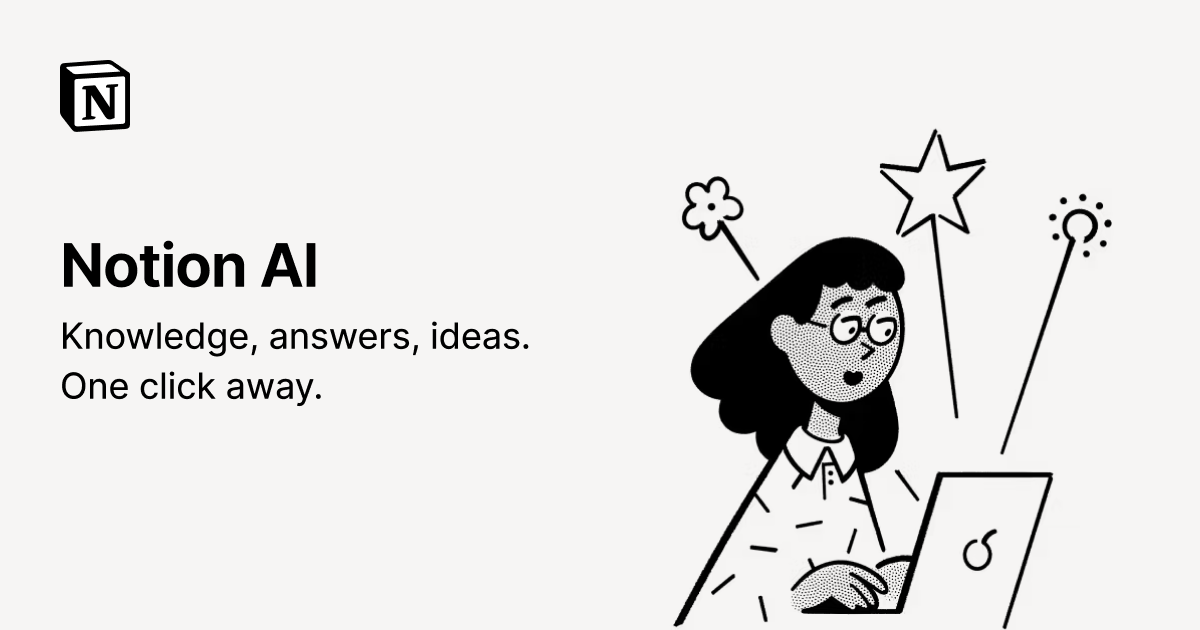
Notion is an all-in-one productivity app that combines note-taking, project management, databases, wikis, and now AI features—all in one highly customizable workspace.
Key features
- Modular workspace with support for notes, tasks, calendars, wikis, and databases
- Built-in Notion AI to help with writing, summarizing, brainstorming, and Q&A on your content
- Custom templates and layouts to match your workflow
- Enterprise features like private teamspaces, version history, and SAML SSO
What I liked
- Everything is in one place—notes, tasks, projects, docs
- Customizable pages and templates make it easy to build your own system
What I disliked
- The flexibility can be overwhelming at first—there’s definitely a learning curve
- Offline access is limited—you’ll need an internet connection for full functionality
- Notion Mail is still early—only works with Gmail, and no Android or Windows version yet
Pricing
- Free plan available with limited block storage and 7-day version history
- Plus plan: $10 per user/month (billed annually) or $12 monthly
- Business plan: $15 per user/month (billed annually) or $20 monthly—includes full Notion AI
Suitable for
- Students, professionals, and teams who want a customizable workspace to organize everything
How to start
- Go to Notion’s website, sign up for the free plan, and start exploring notes, pages, and templates.
Notion reviews (source)

3. Tana

Tana is a graph-based productivity app that combines note-taking, task management, voice memos, and AI into one powerful workspace. Built on a “everything is a node” philosophy, Tana gives you the flexibility to turn ideas into actions, structure your thoughts, and create dynamic systems that evolve with your needs.
Key features
- Supertags and fields: turn notes into tasks, meetings, or custom objects
- Google Calendar integration: pulls in meetings and auto-summarizes them
- Built-in AI chat and command workflows
- Multiple layout views: outline, tabs, calendar, dashboards
- Semantic search across your entire graph
- Available on desktop and mobile
What I liked
- The supertag system is powerful once you get the hang of it
- Live queries make it easy to build dashboards and see only what matters
What I disliked
- There’s definitely a learning curve, especially around structuring supertags and queries
- The mobile app is improving but still limited for heavier editing or AI usage
- Exporting data or integrating with external tools can be a bit clunky
- Not the best fit if you want something minimal or distraction-free out of the box
Pricing
- Free tier available.
- Tana Plus: $10/month — voice memos, Google Calendar, AI chat
- Tana Pro: $17.99/month — advanced AI workflows, command nodes, higher limits
Suitable for
- Productivity power users, researchers, and teams who want to build flexible workflows for notes, meetings, and tasks—especially those who love working in graphs and want more automation in their day.
How to start
- Go to tana.inc, sign up for a free account, and explore the templates.
Tana Reviews (Source)

4. Capacities

Capacities is a modern, object-based productivity app built for personal knowledge management. Unlike traditional folder-based systems, it lets you structure your thoughts around objects. It also includes a built-in AI assistant to help with organizing, summarizing, and querying your content.
Key features
- Object-based structure: notes and content are grouped by real-world objects instead of folders
- Built-in AI assistant: helps you query, summarize, and interact with your notes
- Mobile and desktop apps are available
- End-to-end encrypted and GDPR-compliant
What I liked
- The object-based approach feels natural and makes it easier to connect related thoughts
- Fast and responsive
What I disliked
- Steeper learning curve if you’re used to folder-based systems
- The mobile app is still evolving and can occasionally run into sync issues
- Lacks built-in task/project management features - best used as a PKM tool, not a full planner
- Don't have an AI assistant you can talk to
Pricing
- Free tier available. Paid plans with AI and advanced features start around €17.99/month or €199/year. A “Believer” tier offers early feature access.
Suitable for
- Writers, researchers, and deep thinkers who want a highly flexible, connected space to build their second brain. Especially great for those who prefer structured creativity over rigid folders.
How to start
- Go to capacities.io, sign up for a free account, and start capturing thoughts as objects.
Capacities Review (source)

IV. Conclusion
AI note-taking tools will become indispensable in the fast-paced modern world where information overload is a common challenge.
These tools not only simplify the note-taking process but also enhance productivity by ensuring that all important details are captured and easily accessible.
By leveraging artificial intelligence, these apps can automatically categorize, tag, and organize notes, making them easily accessible when needed.
Whether for academic, professional, or personal use, AI note-taking tools provide smart solutions to stay organized, save time, and increase efficiency, making them a valuable asset for anyone looking to manage their information more effectively.
AI Tools to Organize Notes: FAQ
1. What are AI tools for organizing notes?
AI tools to organize notes are productivity apps that use artificial intelligence to help you capture, structure, and find information faster.
Instead of manually tagging or sorting your notes, these tools understand what you’ve written and help you:
- Find the right info when you need it
- Turn scattered thoughts into to-dos
- Summarize meeting notes automatically
Popular AI note tools include Saner.AI, Notion, Tana, and Capacities, each offering a different approach to staying organized.
2. What can AI tools for notes actually do?
The best AI note-taking tools help you go beyond just capturing ideas. Here’s what they offer:
- ✨ Smart Search: Find notes based on intent, not exact keywords
- 🧠 Automatic Organization: Link related notes or sort them into topics without manual tagging
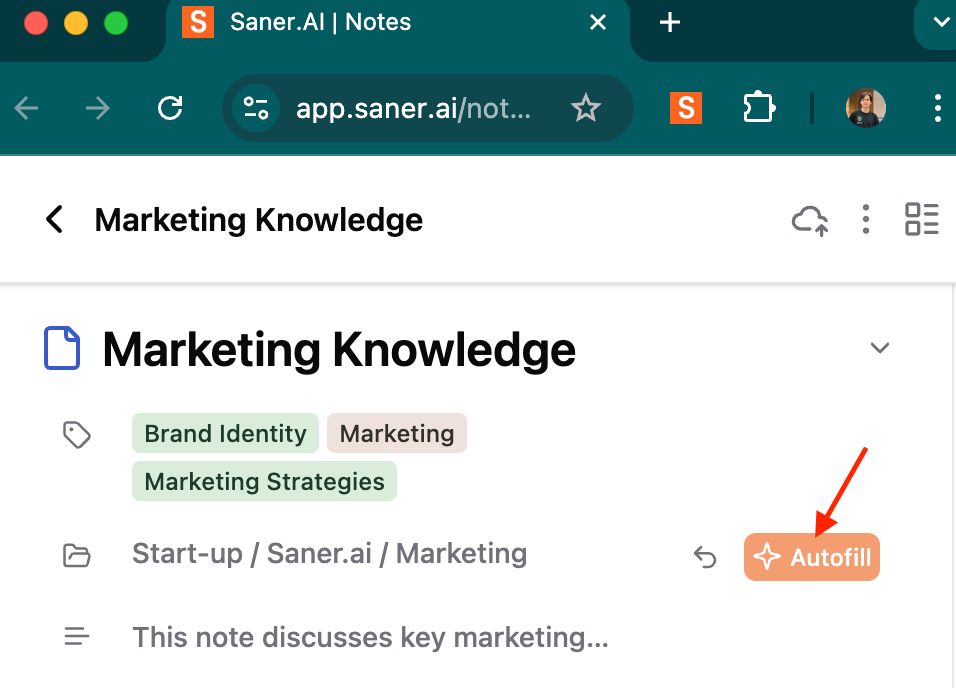
- ✅ Task Extraction: Turn thoughts into to-do lists and deadlines
- 📅 Contextual Reminders: Suggest follow-ups at the right time
- 📄 Meeting Summaries: Instantly summarize calls or long text
For example, Saner.AI can take a messy brain dump and schedule it on your calendar.
3. Are there free AI tools to organize notes?
Yes. Many AI note apps offer generous free tiers:
- Saner.AI – Free plan includes note search, AI task generation, and calendar sync
- Notion – Free plan supports AI summarizing and connected docs
- Capacities – Free for personal use with AI-powered knowledge graph
- Tana – Limited free plan with AI expansion via paid add-ons
4. Which AI note tool is best for entrepreneurs?
Saner.AI is a strong choice if you're juggling ideas, emails, and follow-ups:
- Combines notes, tasks, calendar, and reminders in one workspace
- Auto-detects action items in your notes
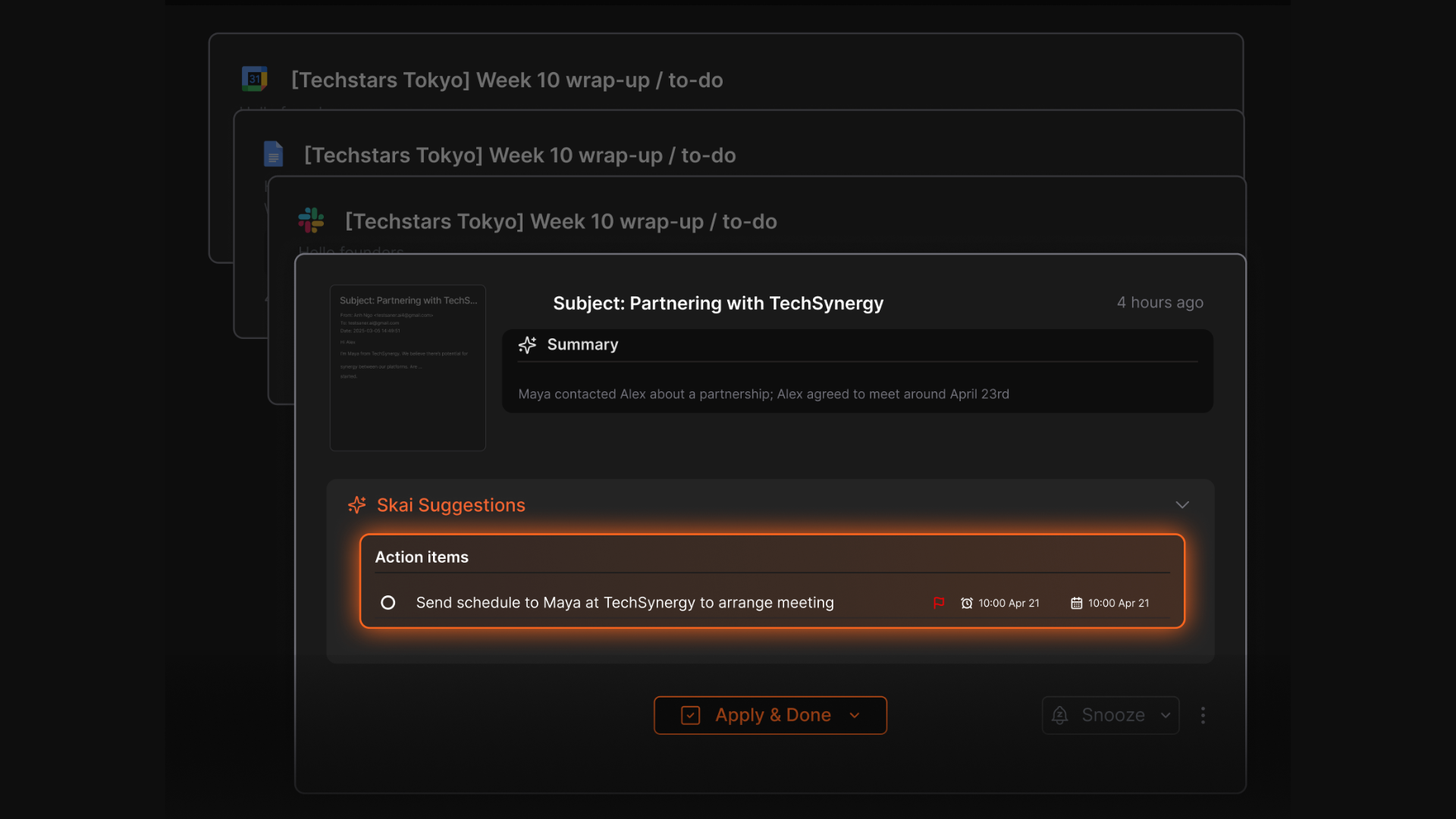
- Reminds you when something’s falling through the cracks
- Great for solo founders who don’t have time to “organize the organization”
5. How does Saner.AI compare to Notion, Tana, and Capacities?
Here’s a quick breakdown based on real-world use:
| Tool | Strengths | Use Case |
|---|---|---|
| Saner.AI | Chat-based input, auto-tasking, ADHD-friendly design | Fast-moving professionals, solopreneurs |
| Notion | Powerful database + page linking with AI summarizing | Teams, structured documentation |
| Tana | Daily notes + AI-powered tagging in an outline format | Personal PKM and thought work |
| Capacities | Visual graph view, AI knowledge modeling | Visual thinkers, researchers |
6. Which AI note app is best for ADHD?
Saner.AI was built by ADHDers - for ADHDers.
- Dump your thoughts without structure
- It turns them into tasks and reminders
- No need for tagging, folders, or routines
- Works with your brain, not against it
If you tend to get overwhelmed or forget what you were doing, Saner helps keep the loop tight.
7. What’s the easiest way to start organizing notes with AI?
Start small. You don’t need to change your whole system overnight.
Try this:
- Type your next thought into Saner.AI like: “remind me to follow up on pricing email tomorrow”
- Paste your meeting notes and ask: “What are the key takeaways?”
- Search “client A May notes” and let it do the rest
Once you see the time saved, you’ll start using it for more.
8. Can AI tools really make me more productive?
Yes - and here’s why:
- You stop spending 10 minutes hunting for one note
- No need to tag or organize manually
- Action items aren’t forgotten
- You can focus on doing instead of finding
Saner.AI even nudges you with the right task at the right time.
9. Which AI tool is best if I’m already using Notion?
Notion’s AI is great if you’re deep into building your own workspace.
But if you want something:
- Faster to set up
- Less overwhelming
- Better at turning notes into tasks
Then Saner.AI might be a better choice.
10. Can AI tools organize handwritten or voice notes too?
Some do. For example:
- Saner.AI: Accepts voice input, turns it into tasks and notes
- Notion AI: Works with typed text; needs third-party for voice
- Tana / Capacities: Voice input limited, but may expand with plugins
So if you like speaking your thoughts aloud, Saner is a strong pick.
11. What’s the best AI tool for managing multiple projects?
Saner.AI helps you stay on top of everything without juggling 5 apps:
- Organize notes by client or theme
- Break big goals into next steps
- Surface what’s due soon
- Manage your calendar and tasks in one space
Unlike other tools, it doesn’t just help you store stuff - it helps you act on it.
12. Final thoughts: Which AI note tool should I try first?
If you’re looking for:
- Simplicity + speed → Saner.AI
- Structured databases → Notion
- Outliner-style thinking → Tana
- Visual connections → Capacities
Each tool has strengths. But for busy professionals who just want a calm way to get things done, Saner.AI is the fastest to get started.
Stay on top of your work and life
